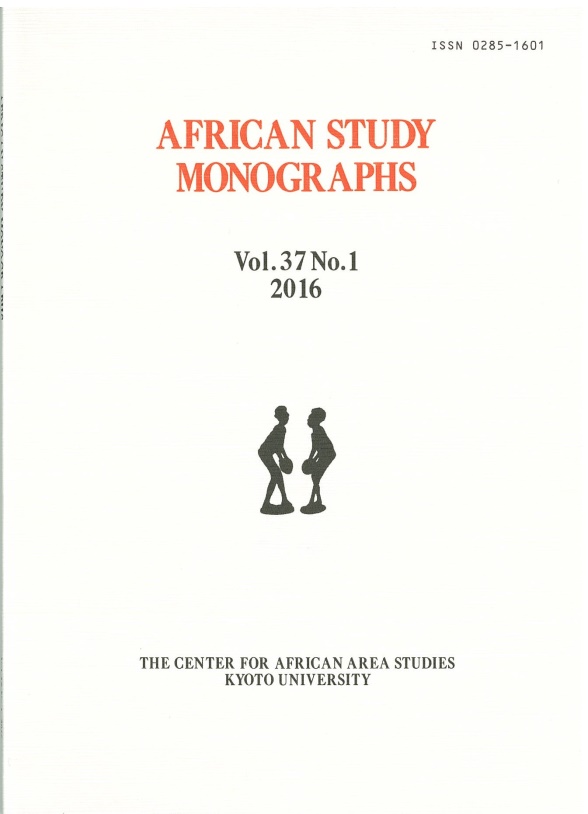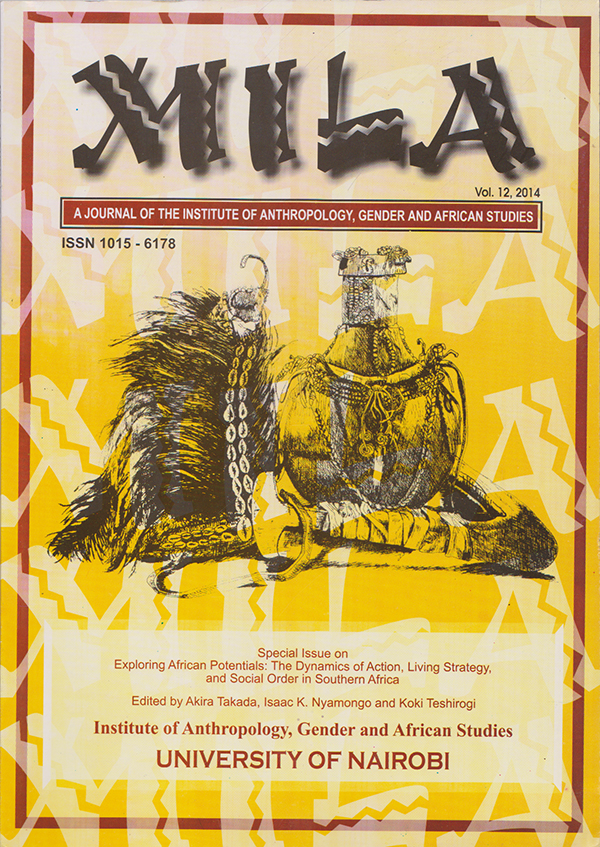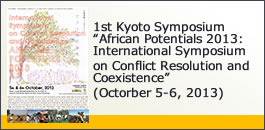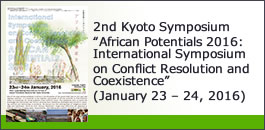Date: March 19 (Tue.), 2013, 16:00 – 18:00
Venue: Small Seminar Room-2, Inamori Center 3F.
“The Urban Working Class Dimensions of Zimbabwe’s War Veterans Revolution: New Empirical Evidence from the Informal Sector”
Wilbert Zvakanyorwa Sadomba (Department of Sociology, University of Zimbabwe)
Program
16:00 – 18:00 Wilbert Zvakanyorwa Sadomba (Department of Sociology, University of Zimbabwe)
“The Urban Working Class Dimensions of Zimbabwe’s War Veterans Revolution: New Empirical Evidence from the Informal Sector”
Abstract
The revolution that has been spearheaded by Zimbawean veterans of the 1970s guerrilla war has pushed Africa’s political, social and economic struggles to new horizons. It raises fresh philosophical questions about postcoloniality of and in Africa. The revolution, rooted as it is in the liberation struggle that culminated in a protracted war from the1960s to 1979, lay a political foundation that continues to shape philosophical thought and social practice of this small nation, with ripple effects on the whole continent and perhaps other developing nations across the world. The essence of this revolution is its combined challenge of neo-colonialism and imperialist domination supported by settler economic hegemony. There are four distinct rural and urban movements on which this revolution was anchored, viz. the land, informal mining, housing cooperatives and informal industry and trade movements. A combination of the two books focus on the land and housing cooperatives. Of the five the land movement was the most popularised and internationalised but it was by no means the most dramatic or even the most sustainable but on the contrary it was the most vulnerable to neo-colonial forces and imperialist attacks. However it was also the most symbolical. Current studies on the informal industrial movement add more empirical evidence to this theorisation. Future studies will pursue informal mining as part of the war veterans revolution. The address will illustrate how the war veteran revolution generated a centrifugal force that span the movements and it will discuss relative successes and failures of these in the current political stalemate of the country.


 Exploring African Potentials, Mila Special Issue
Exploring African Potentials, Mila Special Issue
